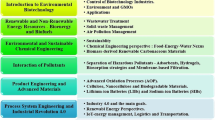Abstract
An epistemology mainly oriented at a philosophical discussion of natural sciences and technology is sketched out on the basis of the author’s “methodological scheme-interpretationism” combining a realistic and a perspectival pragmatic approach. - In the main part, 12 characteristic features of the New Technologies are presented and discussed as, e.g., operationalization, computerization, models and modularity, virtuality and artificiality, interdisciplinary interaction, comprehensive and complex systems, telematization and remote control, robotics and AI technology and automatization as well as “socio-eco-techno-systems”, technology-driven globalization and the respective problems of individual and social responsibility. - Also, actual trends are listed and future tasks for the international ecological cooperation of states, UN and UNESCO bodies under urgent guidelines of humanitarian values and “practical/concrete humanity” are recommended.
Similar content being viewed by others
Notes
The “technicalization”, “technification”, or “technologisation” of the virtual and of “virtual worlds” is a very noticeable fact everywhere in highly industrialized media & technology systems and in information and communication technologies we all now use and more or less “live by”. There is the problem of gaining a "secondary reality" of information systems, e.g., most notably the Internet and other information and electronic systems technologies impinging more and more even on economic and political as well as "real life" decisions. In particular, real-time and online decisions have nowadays worldwide impact on this planet (see stock rates) as well as economic and social reverberations.
I am not denying thereby the extant phenomena of degradation and decay in information storage via electronic systems, but I claim that very complex information systems take on a quasi-life of their own insofar as no individual person or programmer can survey any more all the developments of a very complex distributed net functioning by co-operation and via all or, rather, practically innumerable parallel influences of millions of interactive users and programmers.
Just recently in August 2018 I had the privilege to deliver an invited “endowed lecture” (IbnRoshd Lecture) at the 24th World Congress of Philosophy (overall theme: Learning to be Human) in Beijing under the title “Ancient and Modern Practical Ethics of Humanity: Concrete Humanity from Mencius to Schweitzer” (cf. Lenk 2019).
References
Clarke RA, Knake RK (2010) Cyber war. Harper Collins, New York
French PA (1984) Collective and corporate responsibility. Philpapers, New York
ISI (Fraunhofer-Inst.) (1998) (Ed., red.: Cuhls K, K Blind, Grupp H). Delphi ‘98: Studie zur globalen Entwicklung von Wissenschaft und Technik. 2 vol, Karlsruhe
Lenk H (1971) Philosophie im technologischen Zeitalter. Kohlhammer, Stuttgart (2nd ed. 1972)
Lenk H (ed) (1973) Technokratie als ideologie. Kohlhammer, Stuttgart
Lenk H (1982) Zur Sozialphilosophie der Technik. Suhrkamp, Frankfurt/M
Lenk H (ed) (1991) Wissenschaft und Ethik. Reclam, Stuttgart
Lenk H (1992) Zwischen Wissenschaft und Ethik. Suhrkamp, Frankfurt/M
Lenk H (1994) Macht und Machbarkeit der Technik. Reclam, Stuttgart
Lenk H (1998) Konkrete Humanität. Suhrkamp, Frankfurt/M
Lenk H (2003a) Grasping reality. World Scientific, Singapore
Lenk H (2003b) Responsibility and risk minimization. Human Factors Ergonom Manuf 13:203–222
Lenk H (2003c) Values as standardized interpretative constructs. In: McBride WL (ed) The idea of values. Charlottesville, VI, Philos. Doc. Ctr., pp 85–125
Lenk H (2005) Recognizing the structural features of new technologies. In: Mitcham 2005, vol. 1
Lenk H (2007) Global technoscience and responsibility. LIT, Berlin–Muenster
Lenk H (2015) Human-soziale Verantwortung. Projektverlag, Bochum-Freiburg
Lenk H (2017) Scheme dynamics. Projektverlag, Bochum-Freiburg
Lenk H (2018) Human zwischen Öko-Ethik und Ökonomik. Projektverlag, Bochum-Freiburg
Lenk H (2019) Not a long way to concrete humanity?. Projektverlag, Bochum-Freiburg
Lenk H, Maring M (eds) (2001) Advances and problems in the philosophy of technology. LIT, Muenster. (Also: E Agazzi, Lenk H (eds) 1998: Advances in the philosophy of technology. Newark, DE 1999, in: Techne 4 (1998), no. 1; Philosophy & Technology 4, no. 2)
Lenk H, Ropohl G (eds) (1987) Technik und Ethik. Stuttgart: Reclam (2nd ed., 1993)
Margashak Y et al (eds) (2009) Silicon versus carbon. Springer, Heidelberg
Maring M (2001) Kollektive und korporative Verantwortung. LIT, Münster
Mitcham C (ed) (2005) Encyclopedia of science, technology, and ethics. Detroit (2nd Ed. with JB Holbrook: Ethics, Science, Technology, and Engineering. 4 vols. Farmington Hills, MI: Gale, 2015)
Ropohl G (1996) Ethik und Technikbewertung. Suhrkamp, Frankfurt/M
Unger SH (1982) Controlling technology. Wiley, New York 1982 (2nd ed., 1994)
VDI (Verein Deutscher Ingenieure) (ed) (1991) Technikbewertung: Begriffe und Grundlagen. VDI-Richtlinie No. 3780. Düsseldorf
Author information
Authors and Affiliations
Corresponding author
Additional information
Publisher's Note
Springer Nature remains neutral with regard to jurisdictional claims in published maps and institutional affiliations.
Rights and permissions
About this article
Cite this article
Lenk, H. Challenges for a Pragmatic Philosophy of New Technologies. Axiomathes 30, 649–665 (2020). https://doi.org/10.1007/s10516-019-09456-9
Received:
Accepted:
Published:
Issue Date:
DOI: https://doi.org/10.1007/s10516-019-09456-9



